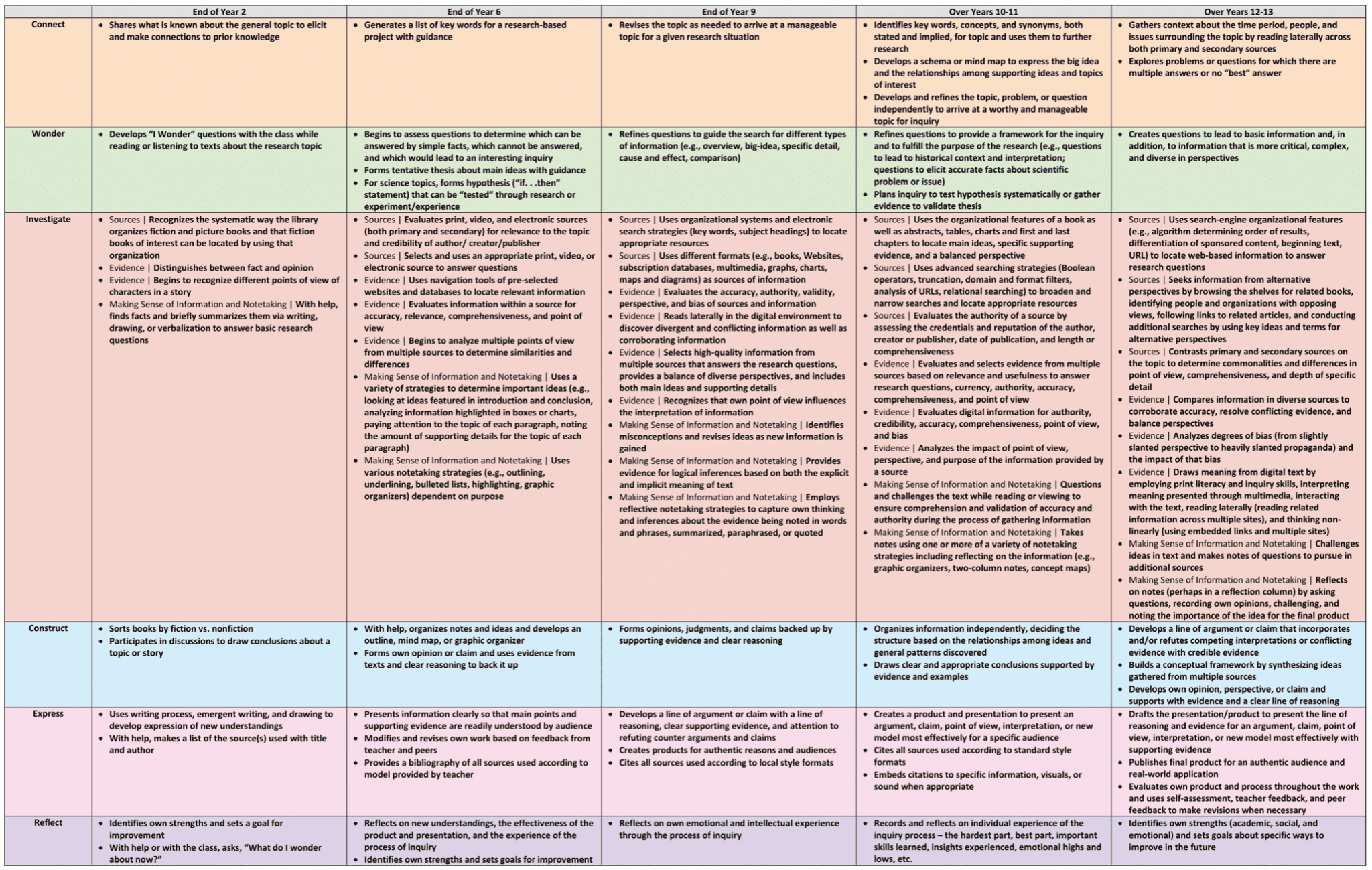Hello, Emma, and wishing you well in your new school.
Given your position of influence, might I suggest a different approach for your consideration?
Our challenge is always going to be how to develop inquiry learning skills systematically and progressively within the model of the inquiry learning process that we have chosen. The real strength of FOSIL/ the ESIFC is that it is both model and framework of inquiry learning skills, including priority skills. We are focussing on priority skills in transition years (see below, or download as PNG). The advantage of this is that if we can embed these skills in transition years – and not necessarily all of them – using whatever opportunities are available to us, it then becomes relatively easier to bridge the gaps in intervening years using whatever opportunities are available to us. This, in turn, makes it relatively easier to demonstrate how our work in each phase of of the school builds systematically and progressively into the kind of student who is able to take something like the EPQ, and all that it represents, in their stride, which is a powerful indicator of success in and beyond school.
For us, I need to revisit FOSIL in Primary School (from this post on, particularly Year 2), am reflecting on Year 6 (Grade 5) Interdisciplinary Signature Work Inquiry @ Blanchelande College, am reflecting on Year 9 (Grade 8) Interdisciplinary Signature Work Inquiry @ Blanchelande College (which should lead to an HPQ in Year 10), and Jenny is reflecting on FOSIL and the Extended Project Qualification (EPQ) (from this post on, and we need to create a separate topic for our Year 12 inquiry skills course).
Of course, your situation may demand a different approach, in which case we will look forward to sharing in your story.
Darryl




